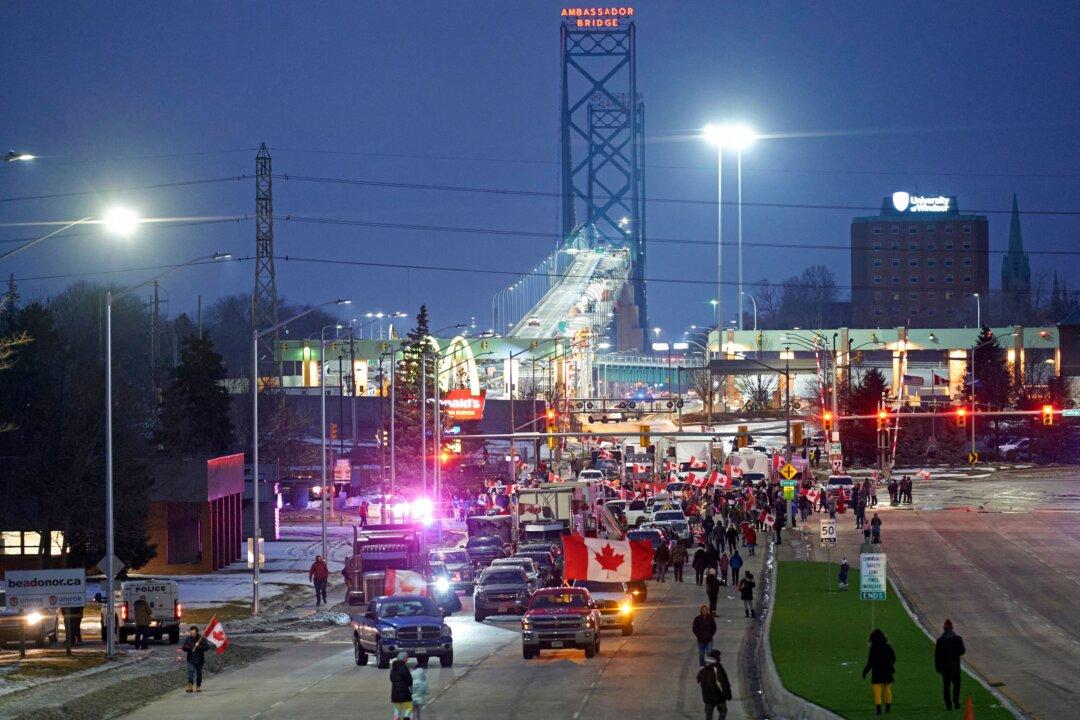The Ottawa trucker protest against COVID-19 mandates and restrictions has expanded, with blockages at two key Canada-U.S. borders and rallies joined by thousands in provincial capitals.
Meanwhile, as the protests persist and opposition parties debate the Liberals’ pandemic policies, two Liberal MPs dissented from their government’s position this week, citing its divisive COVID-19 policies and rhetoric that demonizes those protesting the policies.






